At home you might be dealing with a person who understands you so well, they almost read your thoughts. But that doesn’t mean you feel “understood” in a positive sense, your needs met, or your emotions valued. It is possible you are in a relationship with a dark empath and don’t have a clue you are in an abusive relationship.
But, empathy and dark? Sounds like a paradox, doesn’t it? Up till now, we understood empathy as a trait of emotionally intelligent, highly sensitive people who were looking to understand your pain and joy and be of support. Enter the term “dark empath” and we are left confused.
Often termed the most dangerous personality type, dark empath is a fairly new term stemming from recent research. And it would be impossible to understand it without the intervention of a specialist. To help you gain better insight into the concept of dark empathy, we consulted Dr. Karan Dhawan (MD, Psychiatry), founder of Healing Soul Clinic, who specializes in de-addiction, personality disorders, mood disorders, and gender dysphoria disorders. From our expert’s desk directly to you, here is your step-by-step guide to understanding what is a dark empath and how to deal with a dark empath in a relationship.
Who Is A Dark Empath?
Table of Contents
Narcissists, we understand, are the ones to be wary of. They are selfish and manipulative. On the contrary, in a typical empath vs narcissist contrast, empaths are the victims with a pathological need to be kind and giving, giving in to a narcissist’s selfish demands. But now we learn that an empath too can have a malevolent dark core. How is that possible?
This study describes dark empaths as people who “demonstrate a cluster of dark personality traits (the dark triad traits) combined with elevated levels of empathy.” Dr. Dhawan explains, “A dark empath has cognitive empathy i.e. understanding of others’ emotions, along with manipulation expertise, selfishness, and remorselessness. And that’s how you have a master manipulator on your hands!”
Related Reading: Relationship Bully – What Is It And 5 Signs You Are A Victim
What is the Dark Triad?
Scientists have clubbed a trio of negative personality traits called the “Dark Triad”, or sometimes the “energy vampires”. These personality traits are:
- Narcissism: Associated traits – selfishness, arrogance, grandiosity, an exaggerated sense of self-importance
- Machiavellianism: Associated traits – an absence of morality, manipulation in relationships, self-interest, and exploitative tendencies
- Psychopathy: Associated traits – lack of remorse, anti-social behavior, impulsivity
The one thing that is common in all three is that they all lack empathy. The Dark Triad, therefore, is a “low empathy + high dark traits” combination. What happens in the case of dark empathy is that it combines these dark traits with high levels of empathy. To sum it up visually:
- Dark Triad = Low empathy + High dark traits
- Dark Empathy = High empathy + High dark traits
How this terrible combination ends up creating arguably the most dangerous personality type, we see next!
What makes Dark Empath the most dangerous personality type?
To understand the dark empath meaning, we first must look at empathy. The American Psychological Association defines empathy as “understanding a person from his or her frame of reference rather than one’s own, or vicariously experiencing that person’s feelings, perceptions, and thoughts”. But the empathy you see is of three kinds, one leading to the next:
- Cognitive empathy: Knowing what the other person is thinking and how they feel. For example, “I know you are feeling homesick.”
- Emotional empathy: Feeling how the other person is feeling. For example, “I feel sad because you feel sad when you are homesick.”
- Compassionate empathy: Empathy leads to action with a desire to help. For example, “What can I do to make you feel more at home?”
An empathetic person not only knows how you feel, but they also feel your pain and have the instinct to help you. But something is off with dark empaths. You do not see in them a complete lack of empathy but instead what is called “fractured empathy” or impaired empathy. They only have cognitive empathy, which means, dark empaths totally understand how you feel, but that’s where it stops. This knowledge without a desire to be kind is dangerous in their hands.
Dark empaths can use this knowledge for almost mining data from your brain to manipulate you to their advantage. Since they have a map of your mind, they can predict your thoughts, your behavior, and your reaction, and act accordingly. They can hide their malevolent intentions so well it becomes almost impossible to spot their abusive behavior and know what they are up to.
So, will we be turned to dust in front of these Goliaths of manipulations and deceit? Can we take them down? Or where necessary, can we learn to deal with them, live with them and take measures to protect ourselves rather than falling victim to their ways? The first step always is to identify the problem itself.
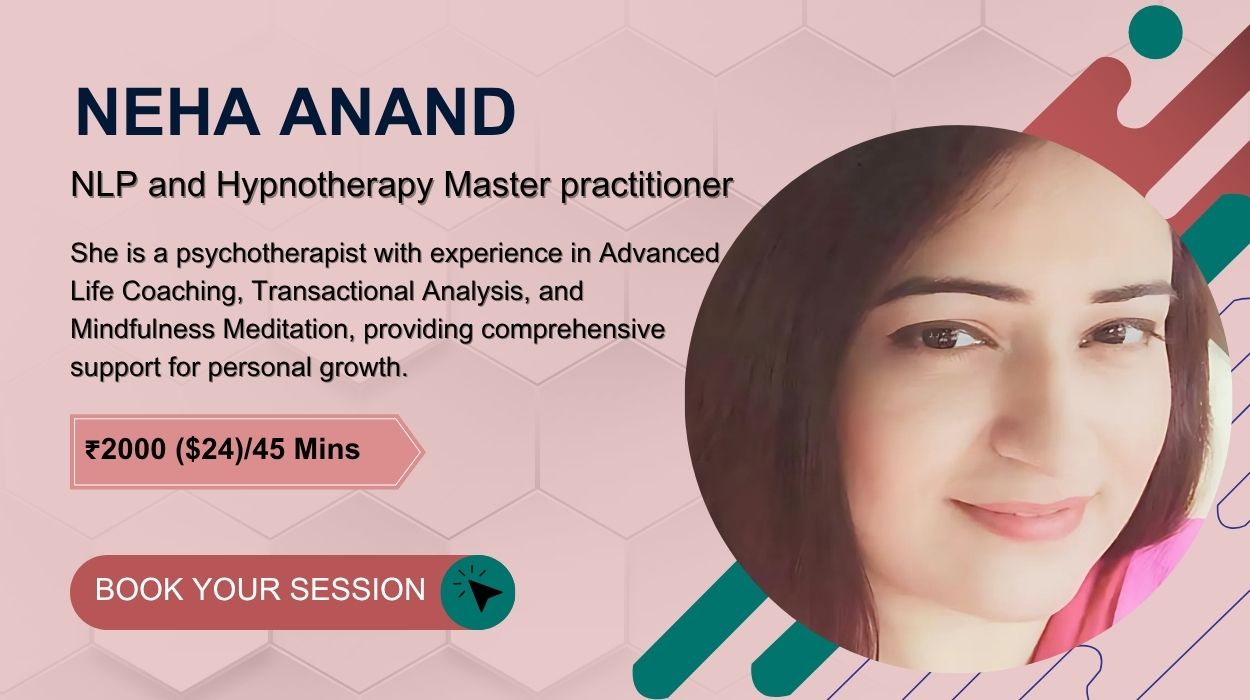
5 Signs Of A Dark Empath
A dark empath is sweet yet manipulative. They are charming, yet hostile. They try to show that they understand you, yet do not let you into their inner thoughts. Dark empaths are extremely complex and therefore hard to spot. Turning the table and using their tactics against them may be our best bet. Let us read their mind to understand their distinctive dark empath traits and spot their bad behavior. Here are a few signs of a dark empath in relationships:

1. Their niceness feels fake
A dark empath knows just the right things to say. “They are usually extroverted and charming, and will often indulge you by love-bombing you,” says Dr. Dhawan. They know how to behave with you. When to be kind, when to compliment you, when to lend a listening ear, when to pat your back. They might be asking you how your day was, really listening to you vent, cuddling you after sex. Looking at you when you feel down and telling you how beautiful you are.
But their compliments fail to warm your heart. Something about their niceness feels off to you. It’s as if it is going to be followed by a “but” or something they are going to ask of you in return.
In such cases, your biggest asset often is your intuition. You can and should trust your intuition. If your gut tells you that they don’t mean what they are saying or doing, it is highly likely they are just faking their sincerity to try to manipulate you into getting something they want, if not right away, then sometime in the future.
Related Reading: How To Differentiate Between Love Bombing And Genuine Care
2. They’re masters in gaslighting and guilt-tripping
“Dark empaths are experts at using other people for their benefit,” says Dr. Dhawan. However, they use indirect forms of aggression much more commonly than direct ones. Since they have to maintain the facade of being your confidant and your best mate, they do not rely on direct aggression as that would blow their cover. Two of their favorite manipulation tactics are gaslighting and guilt-tripping (along with love bombing and ghosting).
A dark empath efficiently lays down the groundwork with you by saying things that you want to hear. They understand your vulnerabilities and know exactly what’s going on in your head. When you are ready to believe whatever they say, they gaslight you. Sending you down a guilt trip works in a similar way. They will pick on your weak spot and make you feel that you are always at fault.
If your abusive partner who you think is also your most understanding partner is making you feel guilty for every little thing and if you distrust your version of things much more often and much more easily, you are likely dealing with a dark empath who has you in their control.

3. They struggle with low self-esteem
Yes, dark empaths are manipulative and selfish, but at their core, they struggle with low self-esteem and issues of confidence and self-worth. Dr. Dhawan says, “A contradiction to a narcissist who has an inflated sense of ego and self, a dark empath is self-aware and knows what they are doing.” (This also has an advantage which we will see later).
You will notice this manifest in several ways in a dark empath:
- They won’t be able to take criticism from others well
- They are too self-critical, often engaging in self-loathing
- They often suffer from mental health issues such as anxiety and depression and are aware of it
- They seek validation from others
4. They have a sarcastic and malicious sense of humor
Freud has called malicious or hostile humor destructive in nature. Psychologists have noted that it is another tool dark empaths employ often since this too is a less direct form of aggression. “Since dark empaths are vindictive, bitter losers and can’t handle criticism well, they might use humor as a defense mechanism to get back at you,” says Dr. Dhawan. Dark empaths can crack a joke at your expense and you wouldn’t even know it. You might even laugh at it utterly confused, not sure why it made you feel horrible.
Does your partner use sarcasm too often, laugh at others’ expense, or use a joke to convey something to you they should have ideally done politely? On top of that, does it feel hard to point out what they did wrong to be able to confront them? Beware, you might be dealing with a dark empath.
Related Reading: What Is A Dry Sense Of Humor? Intelligence Vs Humor Vs Sarcasm
5. They are emotionally intelligent yet distant
Thanks to their ability at cognitive empathy, dark empaths can tell how you are feeling. They are empaths after all, and therefore, display high emotional intelligence. But this does not mean that they will allow themselves to be vulnerable and display their real emotions to you.
A dark empath will be very secretive when it comes to their own emotions. They will try to maintain the status quo by making sure you do not get to see their poor mental health and low self-esteem.
In fact, you might think that your partner is overly kind for focusing all their attention on your problems and your problems alone. Are you both fixated only on your problems, and they get to ride their high horse and pose that all is well with them? This might be a power move! It might help to step away for a second and notice if they are hiding their real selves from you with an ulterior motive.
So, are you in a relationship with a dark empath? Take this quiz
These signs should be enough to recognize your partner’s behavior as abusive or hostile and with malevolent dark empathy tendencies. But if it still confuses you, this dark empathy test may prove helpful. Answer Yes or No to the following questions to find out the truth about your partner.
- Does your partner tell you how you feel when you are upset rather than ask you about it? Y/N
- Does your partner push on their version of how you are feeling rather than what you confess as your true feeling? Y/N
- Does your partner often tell you “I know you better than you know yourself!” to gain your trust? Y/N
- Do they have a dark sense of humor that makes you feel angry or humiliated? Y/N
- Does your partner often engage in gossiping to feel better about themselves? Y/N
- Does your partner find it hard to take criticism and feedback from you? Y/N
- Do you find yourself easily getting gaslighted by your partner? Y/N
- Does your partner often try to guilt-trip you or engage in blame-shifting? Y/N
- Does your partner avoid conversations about themselves or their inner thoughts? Y/N
- Do you think your partner holds back on being vulnerable in front of you or others? Y/N
On its own, each of these questions can be applied to any abusive relationship held together on the shaky grounds of manipulation and controlling behavior, but when viewed together, they may help you identify a dark empath. If you answered Yes to most of these questions, especially ones that show that your partner seems to have access to how you think, you might be dealing with a dark empath in your relationship.
Please note: This form of screening is not intended to be a diagnostic tool. Only a licensed therapist or mental health professional can give you a diagnosis and help you figure out the next best steps for you.
Related Reading: 20 Gaslighting Phrases In Relationships That Are HARD to CALL OUT
Are you wondering “Am I a dark empath?” Take this quiz
If this article has led you to believe that you may know of such a person quite closely in fact, that it may actually be you who has empathetic skills but feels “How do I gain from it?” and is often called a control freak, take this Am I a dark empath quiz to find out and seek help to resolve your behavior. See how much these statements resonate with you.
- I know exactly what others are thinking. Y/N
- It’s a great skill and I might use it for personal gain. Y/N
- It’s easy to convey my contempt toward others if I crack a joke about it. Y/N
- I understand what another person is feeling but it doesn’t move me emotionally. Y/N
- I trust that I understand others’ emotions better than they understand themselves. Y/N
- People often tell me that I have an agreeable, sociable, and extroverted personality. Y/N
- Keeping my emotions to myself is important. Being emotionally vulnerable is a dangerous thing. Y/N
- I have the skill of telling people what they should believe in and they always end up agreeing with me. Y/N
- I don’t like it when others criticize me or point to a flaw because I think they are right. Y/N
- I feel anxious and unsure of myself. I think I might be depressed. Y/N
Again, if you answered Yes to most of these questions, especially ones that show that you are great at knowing what’s going on with other people and feel that it’s something that you can benefit from, you might be suffering from high empathy and dark traits in your personality, possibly making you a dark empath.
Please note: This form of screening is not intended to be a diagnostic tool. Only a licensed mental health professional can give you a diagnosis and help you figure out the next best steps for you.
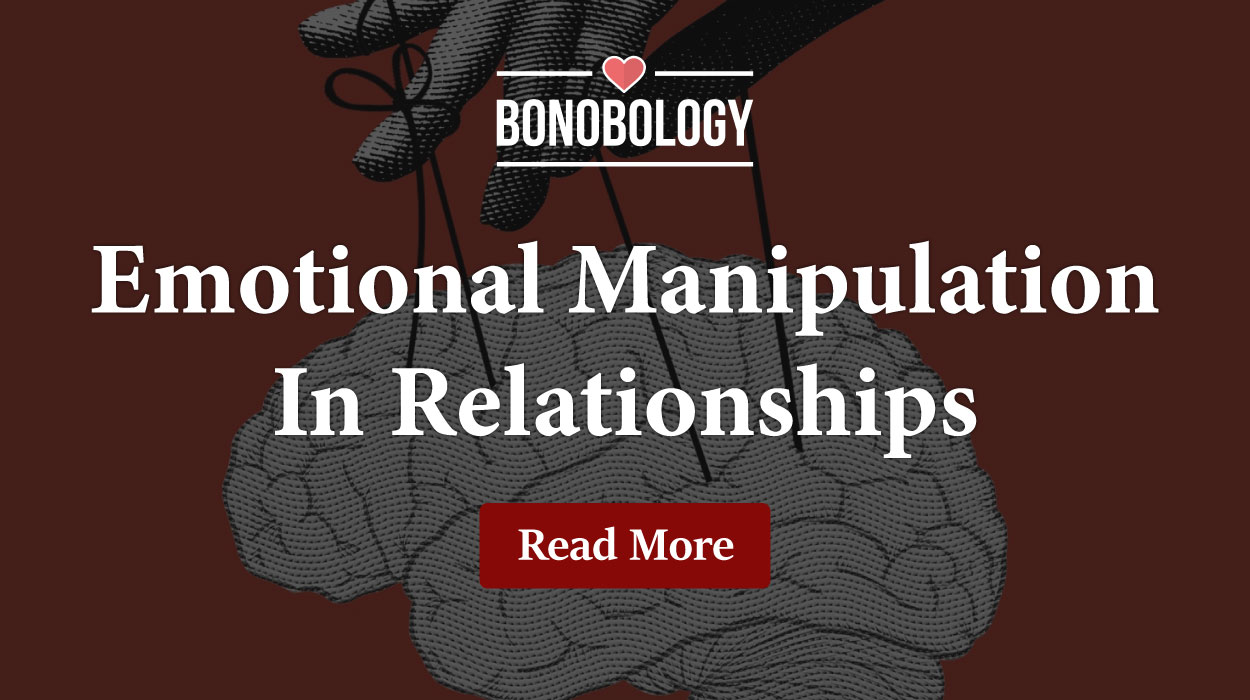
How To Respond To A Dark Empath When In A Relationship With One
Dark empaths are good at compartmentalizing their emotions. They are also aware of their bad behavior but have a way of justifying it in their minds. You need to respond with a similar razer precision focus when dealing with a dark empath. Allow self-preservation to be your primary aim and don’t lose sight of that goal. Now let us look at how best to deal with a dark empath in a relationship:
1. Set and assert personal boundaries
Boundaries are essential. Boundaries are crucial! For any relationship to stay in the healthy zone. And as is the case with most abusive relationships, our expert advises that you set personal boundaries for yourself, declare them clearly to your partner, and make sure you hold your partner accountable when they flout them.
For example, tell your dark empath partner that you do not appreciate their dark humor, especially when you realize the maliciousness of their humor. Do not laugh off their bad behavior now that you are able to spot it. Dr. Dhawan says, “Put in place healthy relationship boundaries and address issues where you feel you are being manipulated rather than enduring it.”
2. Build faith in your intuition
It is your intuition that will tell you when something feels off. When your partner lies to you, makes an insincere compliment, gaslights you into believing something that is not the truth, or tries to guilt-trip you, it is your gut that will tell you that it didn’t feel right to you. That you didn’t experience true joy, true remorse, or true realization of your fault.
It takes a lot of self-belief to listen to that inner voice. And even more so when dealing with a dark empath who is going to make you feel like they know you better than you know yourself. You must take active steps to build a better relationship with yourself. Some steps of self-love and self-care may include:
- Meditate to learn to be in alignment with your feelings
- Take chances and follow your instincts more often
- Try to avoid overthinking menial things
- Journal your thoughts to learn to recognize your feelings
Related Reading: 13 Beautiful Ways To Date Yourself
3. Seek help from a professional – both for yourself and with your partner
When you feel confident enough, you can consider talking to your dark empath partner about your observation. Dr. Dhawan suggests, “You can try to draw their attention to these personality traits and see if they are open to getting help since it will benefit both parties.”
With a dark empath, this is a real possibility, since most dark empaths will have the self-awareness to know what they have been doing and that their behavior is detrimental. Most dark empaths suffer (and know that they do) from mental health issues such as depression and anxiety and may be open to seeing a mental health counselor.
Dr. Dhawan adds, “If your partner is unwilling, it is rather difficult to modify the behavior of a dark empath. So, if you feel overwhelmed and burnt out, it is never a bad idea to seek help yourself.” Seeking support and guidance from a cognitive behavioral therapy specialist may help you identify abusive behavior, unlearn negative beliefs about yourself, rebuild self-esteem, and assert your boundaries.

4. Do not lose perspective when “diagnosing” your partner with “dark empathy”
When we learn to look for red flags, it’s easy to overdo it. We may misdiagnose ourselves if we are too self-critical or to feel better about our behavior. We may misdiagnose our partners to feel superior to them or to evade personal accountability. Which is why it is important to not lose perspective.
Do not forget that dark empathy is a fairly new term and there is a lot that we do not know about it. Understanding traits and spotting signs may be the first step to detecting harmful behaviors. But personality disorders are extremely complex, always on the spectrum. That’s why the intervention of a mental health medical practitioner is a must for an accurate diagnosis.
If you think you are in a relationship with a dark empath, or a person with dark traits, consult a professional counselor to decide your course of action depending on your unique situation. Should you need that help, Bonobology’s panel of experts is here to help you.
Key Pointers
- Dark empaths are people who “demonstrate a cluster of dark personality traits (the dark triad) combined with elevated levels of empathy”
- Dark empaths only have cognitive empathy, which means they understand what is going on in others’ minds. But they do not feel how you feel nor feel moved to help
- A dark empath in relationships is manipulative. Their niceness often feels fake and they engage in indirect forms of aggression and manipulative behavior such as gaslighting guilt-tripping, love bombing, etc
- Dark empath traits also include a malicious sense of humor where they use sarcasm to put their point across or make jokes at the expense of others. They also gossip and bully for the same reason.
- Dark empaths suffer from low self-esteem and mental health issues such as depression and anxiety
- Due to their high emotional intelligence, they are self-aware of their actions and may be open to therapy.
It is not easy to spot or diagnose a dark empath, since the dark empath meaning is complicated. Dark empaths are going to confuse you with their charm and their display of understanding. But do not forget, if you tap into the pool of resources available to you, including your will and your gut, you can not only identify a dark empath but also become a master handler of the master manipulator!
13 Signs You Could Be In A Forced Relationship – And What Should You Do
Your Guide To Dealing With An Angry Person In A Relationship
Your contribution does not constitute a charitable donation. It will allow Bonobology to continue bringing you new and up-to-date information in our pursuit of helping anyone in the world to learn how to do anything.

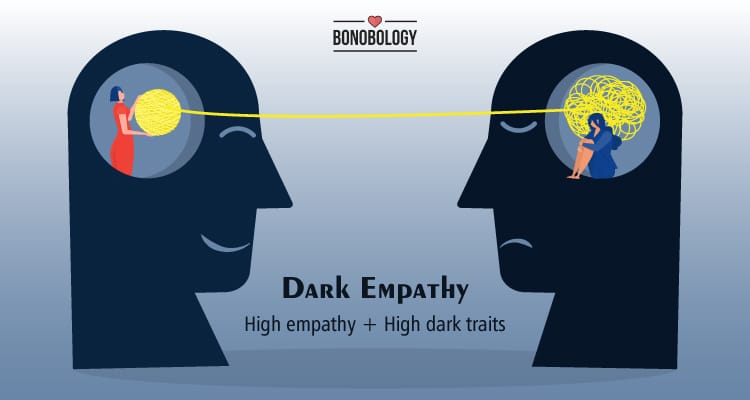

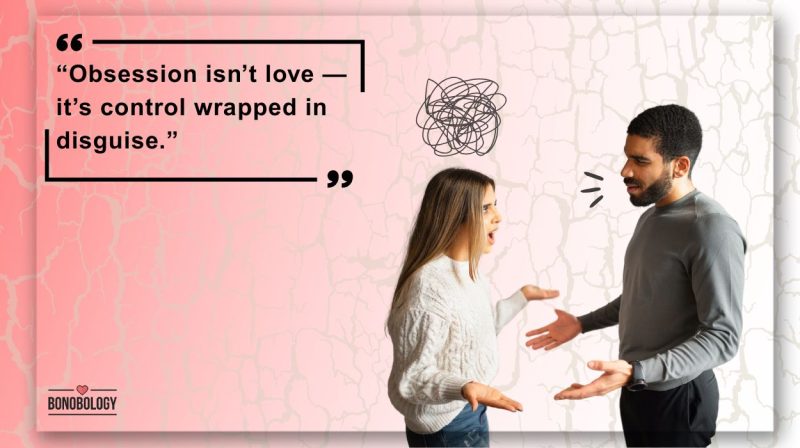
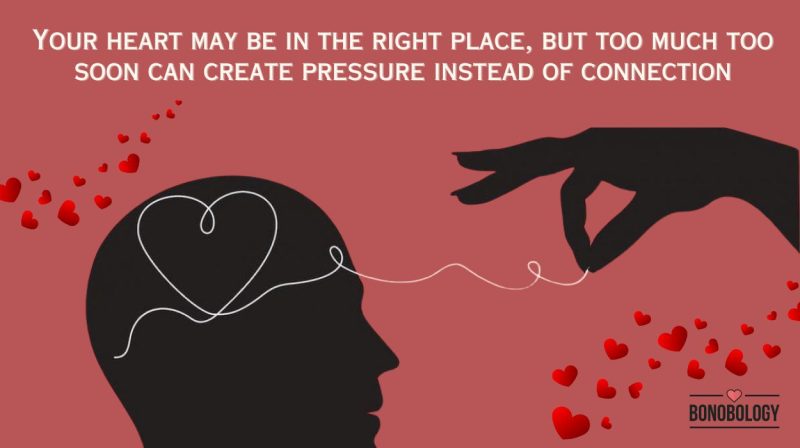
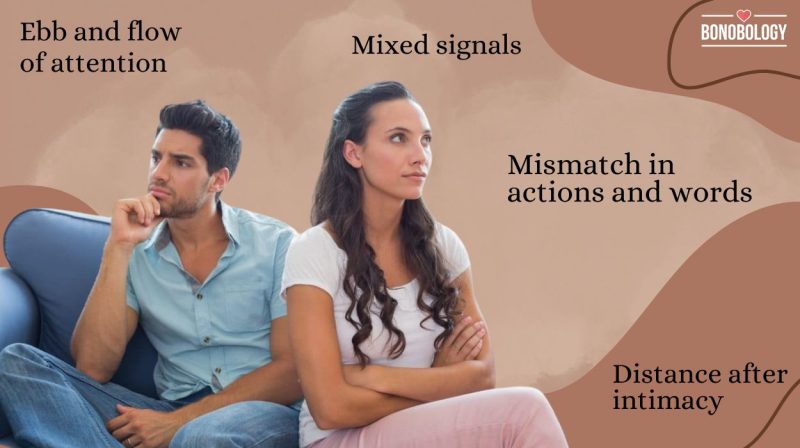
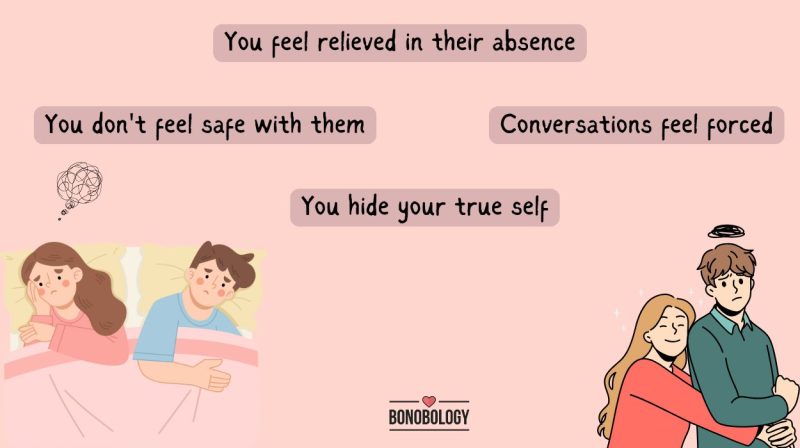
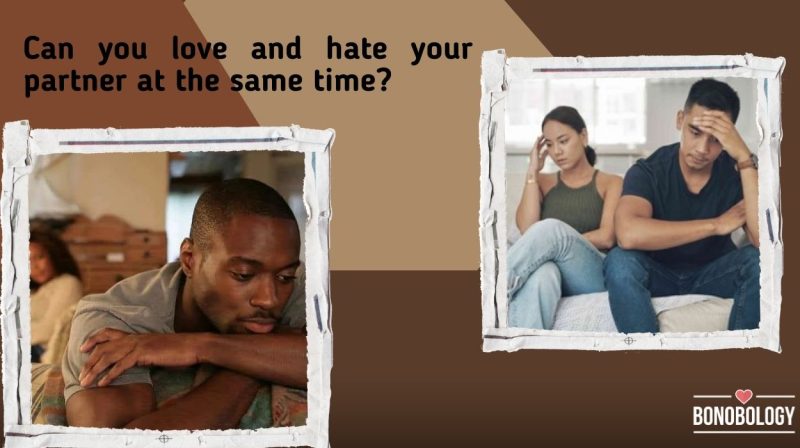

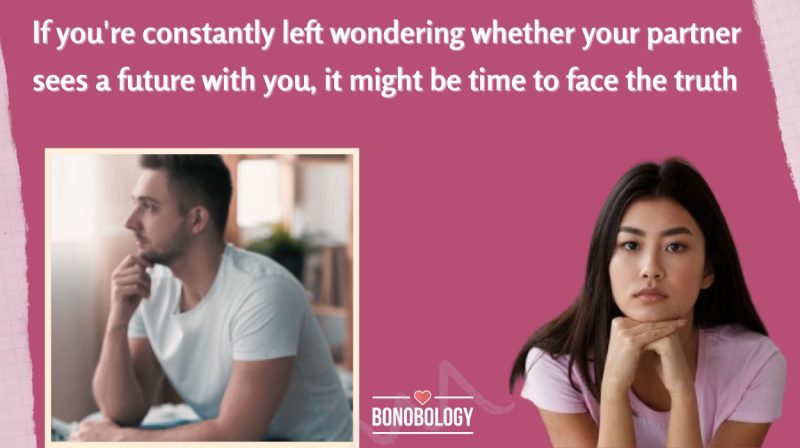
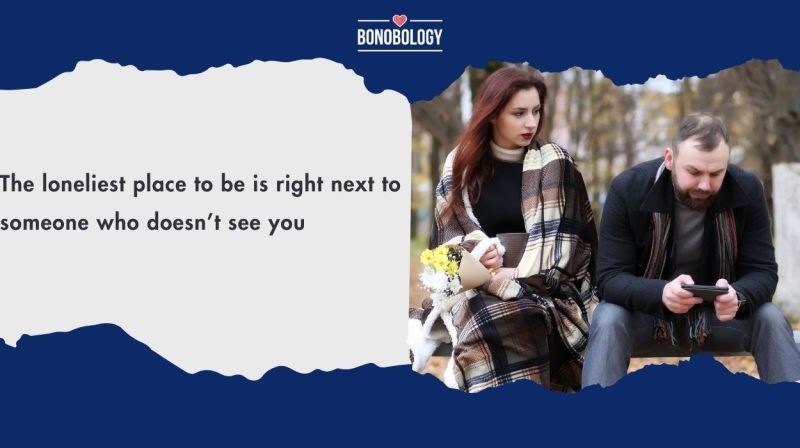
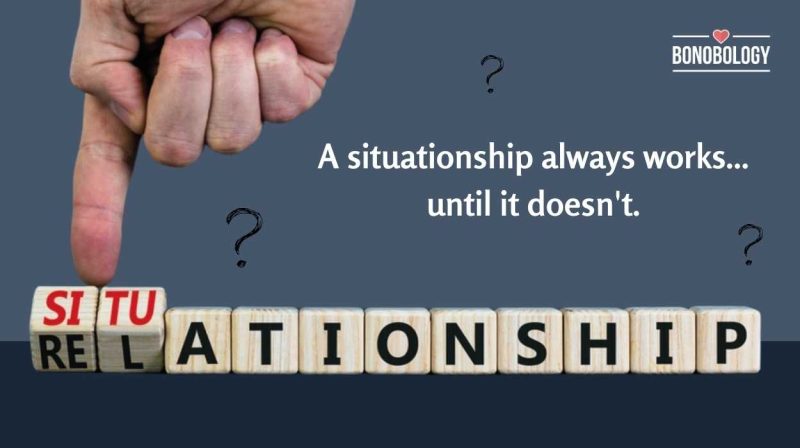
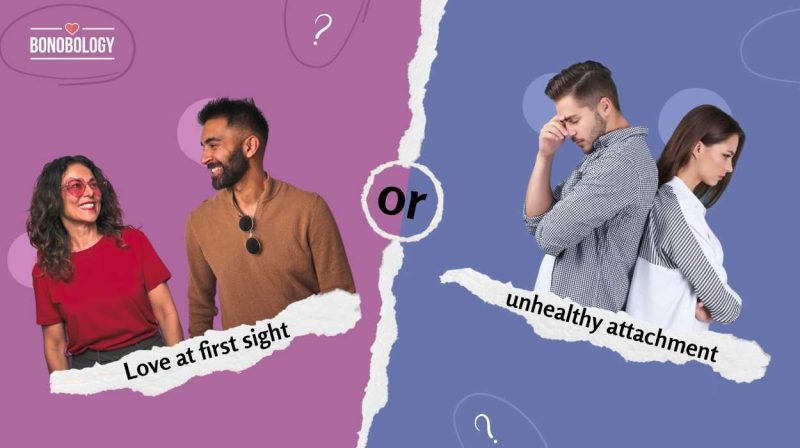
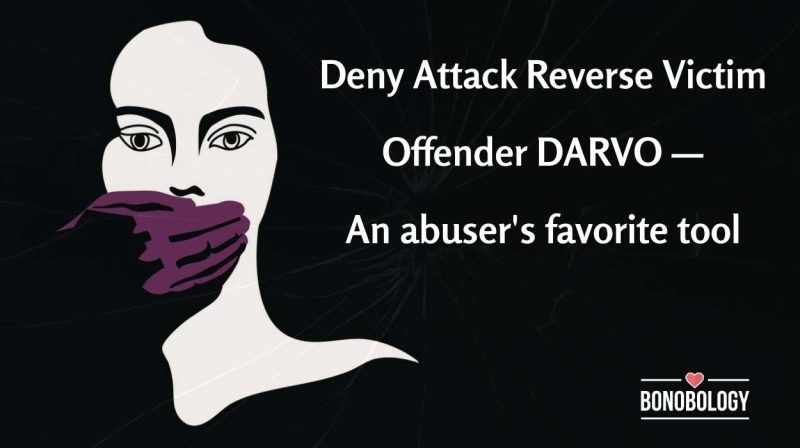
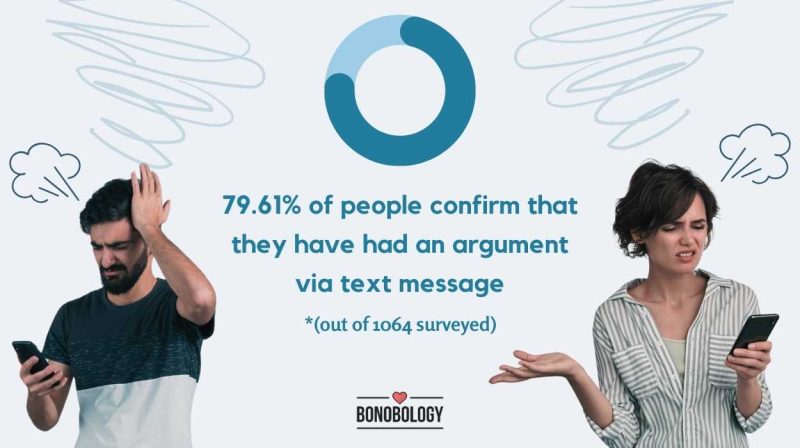
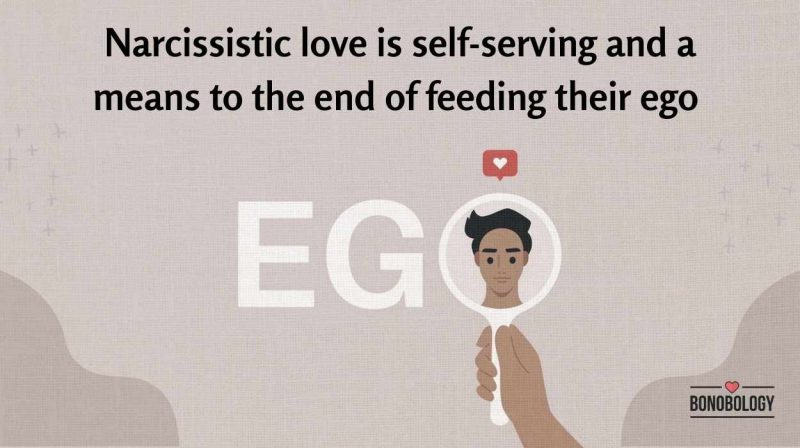
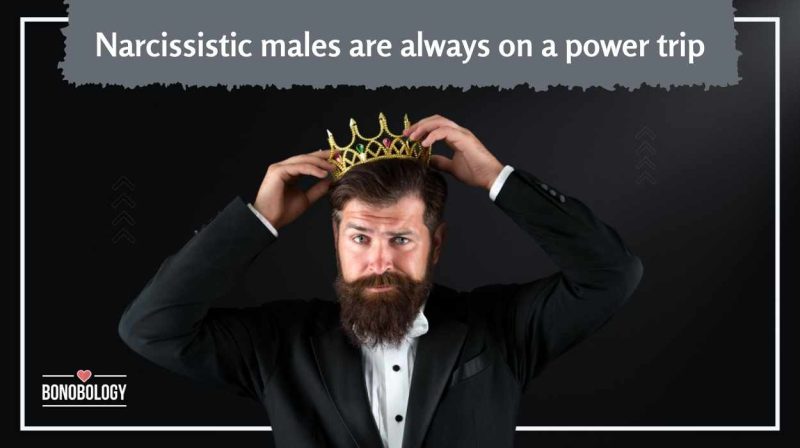
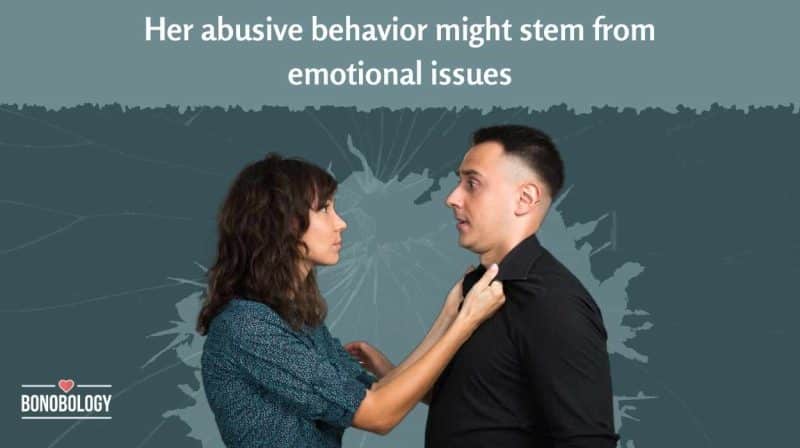
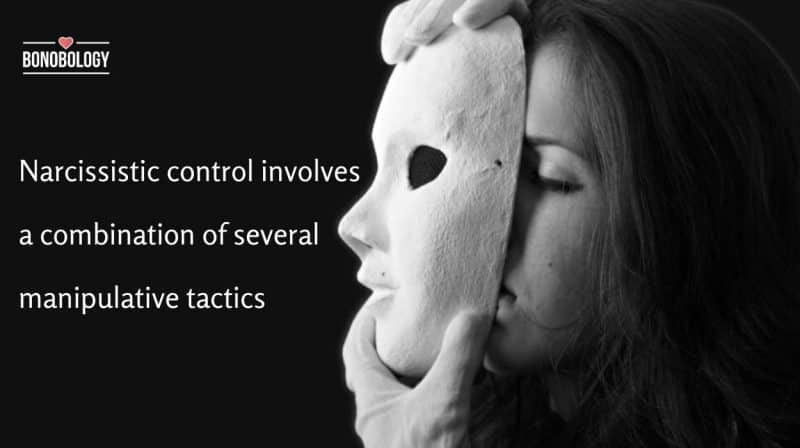
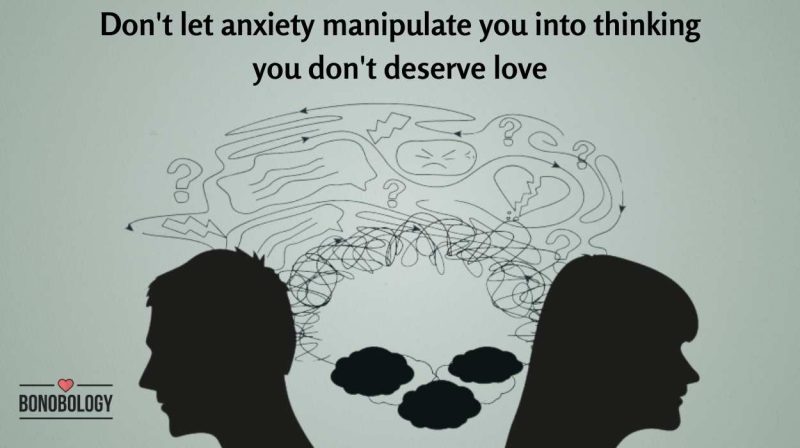
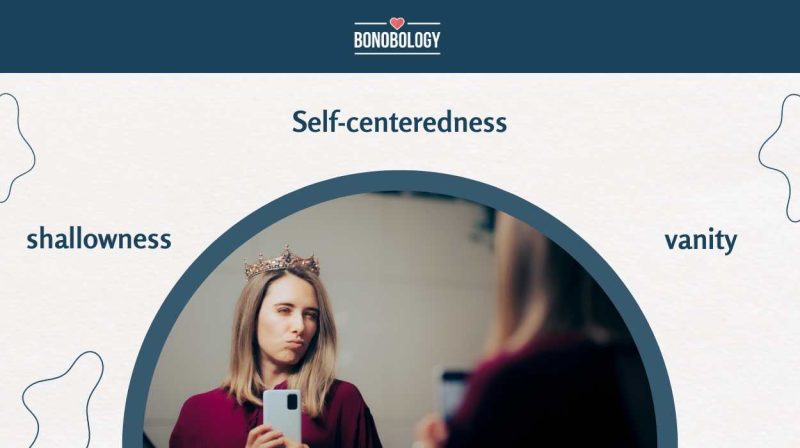

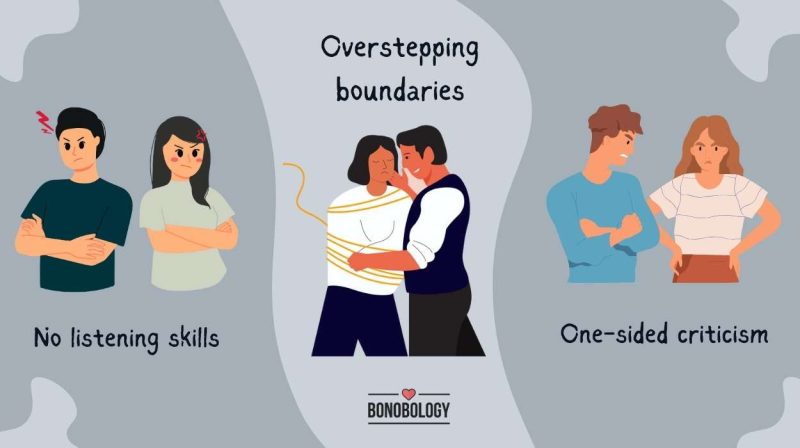
Featured
Signs A Guy Is Obsessed With You In A Bad Way: 15 Red Flags
Unintentional Love Bombing: 9 Ways You May Be Overwhelming Your Partner
13 Signs Of A Hot And Cold Relationship & How To Break The Pattern
21 Subtle Signs You’re Not Really In Love With Your Partner
I Hate My Girlfriend: Why You Feel This Way And What To Do
When Health Challenges Affect Your Relationship Dynamics
5 Harsh But True Signs He’ll Never Marry You
21 Signs That You Are Alone In A Relationship
11 Situationship Red Flags You Should Know About
Why Do I Get Attached So Easily? 9 Possible Reasons and Ways to Stop
How To Respond To DARVO: Expert Lists 7 Strategies
What Is Fexting, And Why Is It Bad For Your Relationship?
Are Narcissists Capable Of Love?
11 Prominent Male Narcissist Traits to Watch For
Why Does My Girlfriend Hit Me? Expert Shares 11 Possible Reasons And Ways To Cope
How Does A Narcissist React When They Can’t Control You?
“My Anxiety Is Ruining My Relationship”: 6 Ways It Does And 5 Ways To Manage It
13 Distinctive Traits Of Female Narcissists Revealed
Recognizing The 13 Red Flags Of A Controlling Relationship
What Are The Examples Of Narcissistic Behavior In A Relationship?